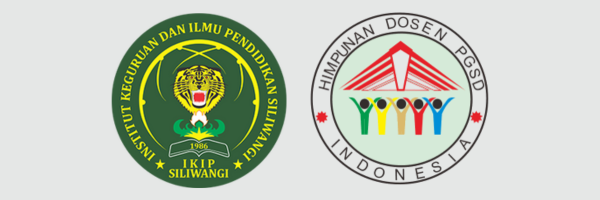The Urgency of Social Skills and Problems of Personal-Social Guidance and Counseling Services in Elementary Schools
DOI:
https://doi.org/10.22460/pej.v9i2.6036Keywords:
Social Skills, Guidance and Counseling, Personal-Social Development, Elementary SchoolAbstract
Social skills are essential competencies that need to be developed from an early age, especially during primary education. These skills play a crucial role in building students’ character, improving communication abilities, and fostering healthy social relationships. However, personal-social guidance and counseling services in elementary schools still face various challenges in their implementation. This study aims to explore the urgency of developing social skills among elementary school students and to identify the problems found in the implementation of personal-social guidance and counseling services from the perspectives of teachers and students. The research used a descriptive qualitative approach, with data collected through interviews, observations, and document analysis. The data were analyzed using thematic analysis, including data reduction, categorization, and drawing conclusions based on key themes. The results show that the implementation of personal-social services is still not optimal due to limited time allocation, a lack of understanding from classroom teachers regarding the function of the services, and low student participation. On the other hand, students showed a high need for social skill development, especially in aspects of empathy, assertive communication, collaboration, and conflict resolution. Referring to the social-emotional learning framework from CASEL (2020), this study highlights the importance of revitalizing personal-social guidance and counseling services in a more systematic and collaborative way to support the development of students’ social skills from an early stage
References
Achmadi, T. A., Anggoro, A. B., & Sari, L. (2020). Analisis 10 Tingkat Soft Skills Yang Dibutuhkan Mahasiswa di Abad 21. 2020, 8(2), 145–151. https://doi.org/10.15294/teknobuga.v8i2.29049
Alsubaie, S. M. (2023). The Effectiveness of a Cognitive Behavioral Counseling Program in Improving The Level of Social Skills And Reducing Isolation Behaviors Among University Students. Perspectives of Science and Education, 61(1), 417–431. https://doi.org/10.32744/pse.2022.6.25
Amin, M. A. S. (2022). Peran Guru Dalam Pengembangan Keterampilan Sosial Siswa Di SDN 1 Jatipamor. 8(1). https://doi.org/10.31949/jcp.v8i1.1930
Ananto, P. (2018). Implementasi Pembelajaran Pendidikan Pancasila Pada Kurikulum 2013 Melalui Pendekatan Pendidikan Kecakapan Hidup. Jurnal Ilmiah Publipreneur, 6(2), 23–36. https://doi.org/10.46961/jip.v6i2.110
Angelo, G. (2015). Social skills: The Modern Skill for Success, Fun, And Happiness Out of Life. Seisnama.
Argyle, M., & Lu, L. (1990). Happiness and Social Skills. Personality and Individual Differences, 11(12), 1255–1261. https://doi.org/10.1016/0191-8869(90)90152-H
Beauchamp, M. H., & Anderson, V. (2010). SOCIAL: An Integrative Framework For The Development of Social Skills. Psychological Bulletin, 136(1), 39–64. https://doi.org/10.1037/a0017768
Bellini, S., Peters, J. K., Benner, L., & Hopf, A. (2007). A Meta-Analysis of School-Based Social Skills Interventions for Children With Autism Spectrum Disorders. Remedial and Special Education, 28(3), 153–162. https://doi.org/10.1177/07419325070280030401
Bolsoni-Silva, A. T., & Loureiro, S. R. (2014). The Role of Social Skills in Social Anxiety of University Students. Paidéia (Ribeirão Preto), 24(58), 223–232. https://doi.org/10.1590/1982-43272458201410
Buchs, C., & Butera, F. (2015). Cooperative Learning And Social Skills Development. Nova Science.
Burke, T. J., Woszidlo, A., & Segrin, C. (2012). Social Skills, Family Conflict, and Loneliness in Families. Communication Reports, 25(2), 75–87. https://doi.org/10.1080/08934215.2012.719461
Caldarella, P., & Merrell, K. W. (1997). Common Dimensions of Social Skills of Children and Adolescents: A Taxonomy of Positive Behaviors. School Psychology Review, 26(2), 264–278. https://doi.org/10.1080/02796015.1997.12085865
Campbell, C., Hansen, D. J., & Nangle, D. W. (2010). Social Skills and Psychological Adjustment. In D. W. Nangle, D. J. Hansen, C. A. Erdley, & P. J. Norton (Eds.), Practitioner’s Guide to Empirically Based Measures of Social Skills (pp. 51–67). Springer New York. https://doi.org/10.1007/978-1-4419-0609-0_4
Cartledge, G., & Milburn, J. F. (1978). The Case For Teaching Social Skills In The Classroom: A Review. 1978, 48(1), 133–156.
Combs, M. L., & Slaby, D. A. (1977). Social-Skills Training with Children (Vol. 1). Springer US.
Creswell, J. W. (2014). Research Design: Qualitative, Quantitative, and Mixed Methods Approaches. Sage Publications.
Demir, M., Jaafar, J., Bilyk, N., & Mohd Ariff, M. R. (2012). Social Skills, Friendship and Happiness: A Cross-Cultural Investigation. The Journal of Social Psychology, 152(3), 379–385. https://doi.org/10.1080/00224545.2011.591451
Desi, D., & Qadaruddin, M. (2022). Peran Teman Sebaya Dalam Meningkatkan Social Skill Mahasiswa Introvert Program Studi Bimbingan Konseling Islam IAIN Parepare. 2022, 4(2), 88–96. https://doi.org/10.35905/ijic.v4i2.3349
Durlak, J. A., Weissberg, R. P., Dymnicki, A. B., Taylor, R. D., & Schellinger, K. B. (2011). The Impact of Enhancing Students’ Social and Emotional Learning: A Meta‐Analysis of School‐Based Universal Interventions. Child Development, 82(1), 405–432. https://doi.org/10.1111/j.1467-8624.2010.01564.x
Elias, M. J., Weissberg, R. P., Frey, K. S., Greenberg, M. T., Haynes, N. M., Kessler, R., Stone, M. E. S., & Shriver, T. P. (2000). Promoting Social and Emotional Learning: Guidelines for educators. Association For Supervision And Curriculum Development.
Gökel, Ö., & Dağlı, G. (2017). Effects of Social Skill Training Program on Social Skills of Young People. EURASIA Journal of Mathematics, Science and Technology Education, 13(11). https://doi.org/10.12973/ejmste/79615
Goleman, D. (2018). Social Intelligence: Ilmu Baru Tentang Hubungan Antar-Manusia (IV). Gramedia Pustaka Utama.
Gresham, F. M. (1998). Social Skills Training: Should We Raze, Remodel, or Rebuild? Behavioral Disorders, 24(1), 19–25. https://doi.org/10.1177/019874299802400103
Hanurawan, F. (2016). Metode Penelitian Kualitatif: Untuk Ilmu Psikologi. PT. Raja Grafindo Persada.
Hidayat, A. (2019). Layanan Bimbingan dan Konseling Pribadi Sosial. 2019, 1(2), 235–250.
Istianti, T., Maftuh, B., Maryani, E., & Wahyuningsih, Y. (2023). Building Students’ Social Skills in Learning Conflict Resolution in Grade IV of Laboratory Elementary School. PrimaryEdu : Journal of Primary Education, 7(2), 153–163. https://doi.org/10.22460/pej.v7i2.3446
Johns, B. H., Crowley, E. P., & Guetzloe, E. (2005). The Central Role of Teaching Social Skills. 2005, 37(8). https://doi.org/10.17161/foec.v37i8.6813
Jones, D. E., Greenberg, M., & Crowley, M. (2015). Early Social-Emotional Functioning and Public Health: The Relationship Between Kindergarten Social Competence and Future Wellness. American Journal of Public Health, 105(11), 2283–2290. https://doi.org/10.2105/AJPH.2015.302630
Jurevičienė, M., Kaffemanienė, I., & Ruškus, J. (2018). Concept and Structural Components of Social Skills. Baltic Journal of Sport and Health Sciences, 3(86). https://doi.org/10.33607/bjshs.v3i86.266
Khalilah, E. (2017). Layanan Bimbingan dan Konseling Pribadi Sosial dalam Meningkatkan Keterampilan Hubungan Sosial Siswa. 2017, 1(1), 41–57.
Kholilah, N. (2018). Implementasi Layanan Bimbingan Dan Konseling Di Sekolah Dasar Islam Terpadu At-Taqwa Surabaya. 2018, 8(3), 36–44.
Kingery, J. N., Erdley, C. A., & Scarpulla, E. (2020). Developing Social Skills. In Social Skills Across the Life Span (pp. 25–45). Elsevier. https://doi.org/10.1016/B978-0-12-817752-5.00002-0
Nader Pilehroud, M., Aslani, B., Esmaeili, M., & Ezadinia, M. (2021). The Effectiveness Of Social Skills Training Based On Cognitive-Behavioral Principles In Changing Coping Strategies Of Middle School Students. Journal of Research in Psychopathology, 2(6). https://doi.org/10.22098/jrp.2022.10058.1046
Notanubun, Z. (2019). Pengembangan Kompetensi Profesionalisme Guru di Era Digital (Abad 21). Jurnal Bimbingan dan Konseling Terapan, 3(2), 54. https://doi.org/10.30598/jbkt.v3i2.1058
Nurihsan, J. A. (2021). Strategi Layanan Bimbingan dan Konseling. Refika Aditama.
Ozben, S. (2013). Social Skills, Life Satisfaction, and Loneliness in Turkish University Students. Social Behavior and Personality: An International Journal, 41(2), 203–213. https://doi.org/10.2224/sbp.2013.41.2.203
Riggio, R. E., Watring, K. P., & Throckmorton, B. (1993). Social Skills, Social Support, and Psychosocial Adjustment. Personality and Individual Differences, 15(3), 275–280. https://doi.org/10.1016/0191-8869(93)90217-Q
Segrin, C., & Flora, J. (2000). Poor Social Skills are a Vulnerability Factor in the Development of Psychosocial Problems. Human Communication Research, 26(3), 489–514. https://doi.org/10.1111/j.1468-2958.2000.tb00766.x
Segrin, C., McNelis, M., & Swiatkowski, P. (2016). Social Skills, Social Support, and Psychological Distress: A Test of the Social Skills Deficit Vulnerability Model: Social Skills Deficit Vulnerability Model. Human Communication Research, 42(1), 122–137. https://doi.org/10.1111/hcre.12070
Septiani, H. E. (2023). Analisis Keterampilan Sosial Pada Siswa Kelas Iv Di SD Negeri 1 Wajakkidul. 1(3).
Stone, C. B., & Dahir, C. A. (2016). The Transformed School Counselor (Third edition). Cengage Learning.
Sukmawati, F., & Nashir, M. J. (2021). Pengaruh Model Pembelajaran Value Clarification Technique terhadap Social Skill Mahasiswa. Jurnal Pendidikan Edutama, 8(2), 155. https://doi.org/10.30734/jpe.v8i2.1776
Supriatna, M. (2017). Efektivitas Model Konseling Aktualisasi Diri untuk Mengembangkan Kecakapan Pribadi. Jurnal Psikologi Pendidikan dan Konseling: Jurnal Kajian Psikologi Pendidikan dan Bimbingan Konseling, 11. https://doi.org/10.26858/jpkk.v0i0.2973
Telaumbanua, K. (2016). Konsep Dasar Layanan Bimbingan Dan Konseling Di Sekolah Dasar.
Wu, Y. (2008). Social Skill in the Workplace: What is Social Skill and How Does it Matter? [Ph. D., University of Missouri--Columbia]. https://doi.org/10.32469/10355/5542
Downloads
Published
Issue
Section
License

This work is licensed under a Creative Commons Attribution-ShareAlike 4.0 International License.
The author is responsible for acquiring the permission(s) to reproduce any copyrighted figures, tables, data, or text that are being used in the submitted paper. Authors should note that text quotations of more than 250 words from a published or copyrighted work will require grant of permission from the original publisher to reprint. The written permission letter(s) must be submitted together with the manuscript.











